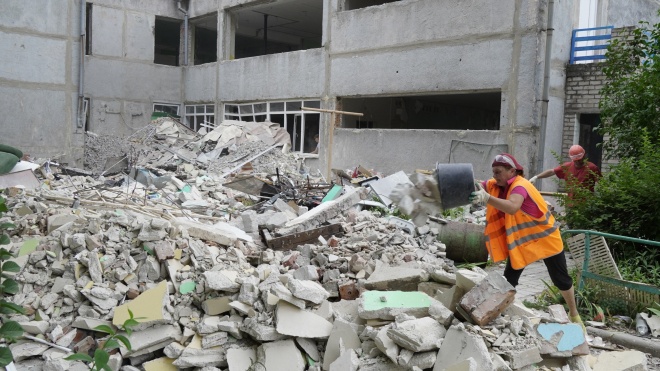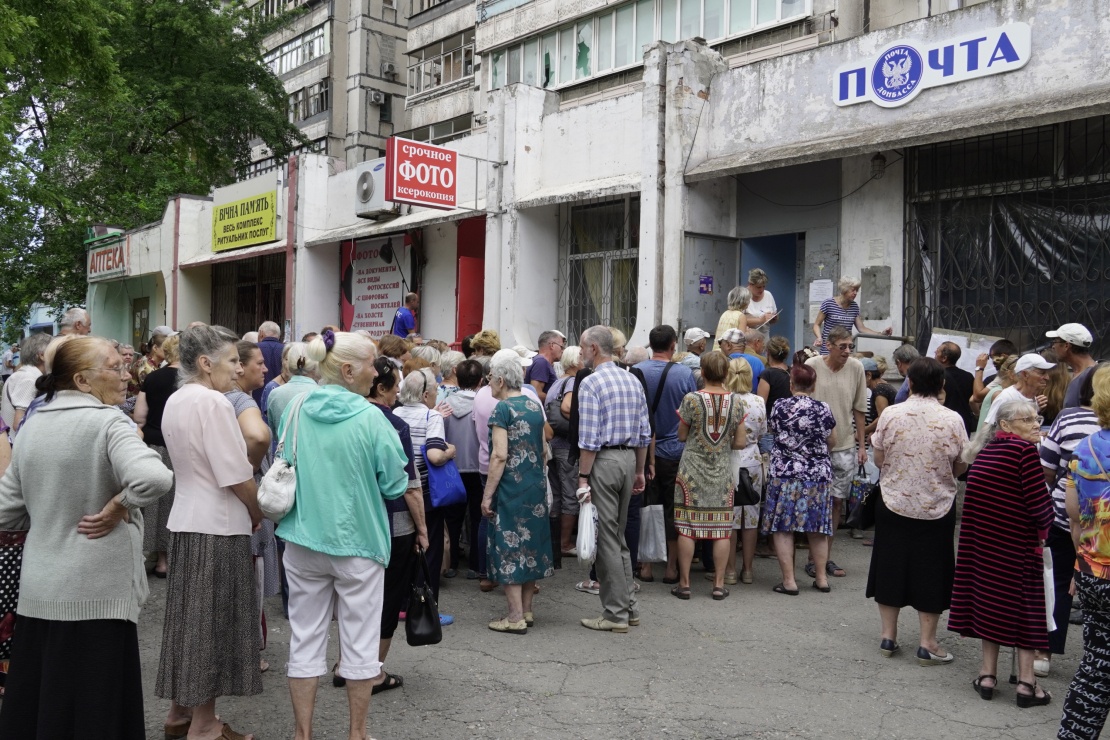Water and electricity are available only in some areas of the city. Twenty-five-year-old Yevhen left Mariupol a few weeks after the full occupation. His parents are still in the city, they were finally given electricity and water a month ago. To connect electricity or water, you need to apply to the city hall, but it takes months to process the application. The occupiers promise to restore gas supply in about two years.
Mobile communication and Internet are available only by Russian providers. The mobile operator Phoenix has started working in Mariupol — since 2015, it has been working in the temporarily occupied territory of Donetsk oblast and positions itself as "republican", but has the Russian code +7. Twenty-year-old Alisa says that she had to give up the Ukrainian mobile operator and switch to Phoenix because there is no other option. But, the girl says, she communicates on the phone only on neutral topics, because she is afraid that the occupiers may intercept the conversations.
The occupiers continue to "filter" the locals — any suspicious person, in the opinion of the occupiers, can be filtered. Also, the city recently opened "filtering points", where Mariupol citizens must appear for questioning if they donʼt want to have problems. The occupiers themselves treat the locals with contempt and disdain, says Alisa. The girl dealt with the Russians personally when she helped in the Mariupol volunteer center.
Pensioners line up outside a post office to collect their monthly payments in Mariupol, July 18, 2022.
"A Russian soldier brought a humanitarian aid to our Mariupol volunteers," says Alisa. “And parked far from the window where we receive the goods. The volunteers said to him: "Come closer." And he replied: "Oh, grab ig from here, you donʼt do here anything anyway." And this is the attitude in everything."
Another volunteer from Mariupol, 24-year-old Maria, brings humanitarian aid to the city every week. She tells: if at checkpoints the occupiers guess that you support Ukraine, at best they will take you to the detention camp, at worst you will be shot. "My colleague was taken to Olenivka, and there he had a stroke, but no one even told anyone about it. And the person who tried to give him some food and medicine was imprisoned."
When entering Mariupol, the occupiers check the body for thematic tattoos and also look at the behavior. The only chance to bring aid to the local residents is to deceive the Russian military, as well as to give a bribe, says Maria.
There is food in the city, but itʼs very expensive. Maria takes the most necessary food products to Mariupol, although the shelves of the surviving stores are filled with products from the occupied Crimea. Despite this, the people of Mariupol, who mostly donʼt have a job or receive a salary of 10,000 rubles at most, cannot provide themselves even with bread. "The prices are like Moldovaʼs budget — very high," says Maria. “Itʼs just that people donʼt have a job, they dismantle rubble there for 400 hryvnias. And you canʼt even buy anything for it, because bread costs around 100," says Maria.
Yevhen, whose parents are still in Mariupol, said that at first the occupiers gave out rations — oil, buckwheat, canned food. But recently they stopped giving grocery sets, and prices continue to rise. Spontaneous markets organized by local people save the day.
There is a catastrophic shortage of medicines in Mariupol. Pharmacies are open, but the selection of medicines is minimal, says Yevhen: "They will give you something at the level of paracetamol for all diseases. Or some patch. If you fall and injure, for example, your hand, no one will take an X-ray and a cast, most likely, wonʼt put on the hand as well."
Pregnant women also suffer, because the maternity hospital has been destroyed and there is no alternative to it.
Those killed during hostilities are buried in mass graves or burned in a crematorium. Since February 24, at least 22,000 people have died in the city — but the real number may be higher, because people were buried in yards. The occupiers are trying to hide the real number of dead. Even before Yevрen left Mariupol, he saw how the ruins of the drama theater were being dismantled. "I saw that KAMAZ trucks drove up and the corpses were dumped right into the truck. They came several times," Yevhen says.
Locals say that unknown people visit the homes of the deceased and have all the information about their inheritance. They are interested in land and houses, apparently planning to seize the property.
The occupiers want to gain a foothold in Mariupol and are making plans for the future of the city. Now the Russians are building four five-story buildings, which they allegedly plan to give to Mariupol residents who have been left without a home. But the locals suspect that the occupiers may settle Russians there. For example, volunteer Mariaʼs apartment was destroyed, the house is in a state of disrepair. However, when she asked about getting a refund, she was told that this will happen after ten years. The occupational authorities also want to rename the city to Zhdanov, in honor of one of Stalinʼs criminals, Andrei Zhdanov.
Translated from Ukrainian by Anton Semyzhenko.
Such stories are not easy to tell. But this must be done so that no crime of the Russians goes unpunished. We want to continue to tell them. Support Babel: Patreon 🔸 [email protected]🔸donate in cryptocurrency🔸in hryvnia.


